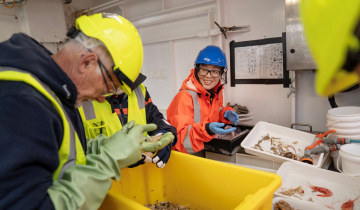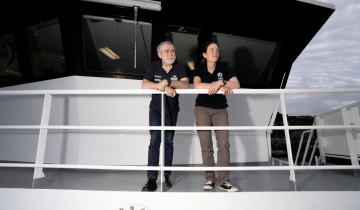This programme aims to provide better predictions of changes in the ocean and climate system, particularly the way in which the ocean around New Zealand regulates greenhouse gases and clouds.
FRST contract C01X0036
Funded 2000–2002
We know that the oceans around New Zealand take up excess CO2 emitted to the atmosphere by the burning of fossil fuels and clearing of forests. We do not know the amount of CO2 uptake accurately, and more importantly we are not sure whether this uptake will increase or decrease in future.
We also know that the oceans release sulfur gases which are transformed in the atmosphere to small particles known as cloud condensation nuclei (CCN), which are required for cloud formation. The rates at which the ocean produces sulfur gases and the processes which lead to the formation of clouds are not understood well enough for us to be sure whether the amount or character of clouds will change as the planet warms up. Research in these areas is needed to reduce uncertainty in predicting future states of the atmosphere, ocean and climate system, and to provide an improved scientific basis for managing human impacts on climate.
Work in this programme is closely linked to other NIWA research programmes on greenhouse gases and marine ecosystems. We also link to overseas research through international projects such as SOLAS (Surface Ocean–Lower Atmosphere Study).
Work in this programme has projects in two key areas:
Studies of air sea exchange processes
- Dynamics of ocean atmosphere exchange
- Ocean atmosphere sulfur exchange
- Ocean atmosphere carbon exchange







